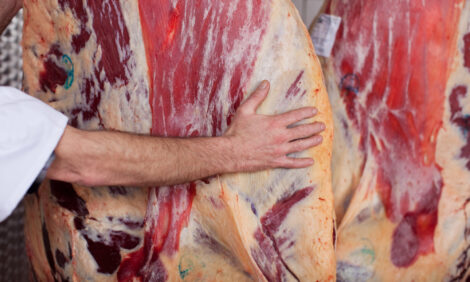



Advice Against Imports After BTV6
IRELAND - The Minister for Agriculture, Fisheries and Food, Brendan Smith TD, today referred to the confirmation of bluetongue (BTV6) in cattle on farms in the Netherlands.The Minister said that this serotype had not been reported previously in the EU and was not known to be present in Europe or in surrounding areas. The information available from the Community Reference Laboratory is that the virus isolated is most likely to be a vaccinal strain of BTV6 virus and it bears a strong resemblance to a live attenuated bluetongue vaccine that is produced in South Africa for administration to sheep. The vaccine is not approved for use in the Community.
These cases and the ongoing confirmation of other strains - particularly BTV1 in France and BTV8 in several member states - mean that there are a number of strains of the bluetongue virus in member states. Minister Smith said that while there are strict movement controls in the Netherlands and in part of Germany as a result of these latest cases and movements from other bluetongue restricted zones are also subject to controls, the existence of several strains of bluetongue raised serious concerns about the wisdom of importing any animals from affected regions at this time. “Ireland is free from bluetongue and I strongly urge Irish farmers and others not to import animals from these regions so as not to jeopardise this status,” the Minister added.
Minister Smith said that the Dutch cases had been discussed at EU's Standing Committee on the Food Chain and Animal Health (SCOFCAH) on 27 October and will be discussed again at the next meeting of that Committee on 11/12 November when more information is expected to be available from the epidemiological and other investigations that are underway.
The Minister welcomed the fact that the current EU rules which allow for imports of cattle and sheep that are less than 90 days old or that have proven natural or vaccinated immunity to relevant bluetongue strains from bluetongue-restricted zones will be reviewed and revised as part of the future Community strategy on bluetongue.
The Minister concluded by repeating earlier advice given to farmers and others not to import livestock at this time under any circumstances pending the outcome of the review. “Such imports at this time pose a very real and serious risk to the entire livestock sector. Where imported animals are identified in the course of post-import testing as BTV positive, the animals are liable to be slaughtered and herdowners concerned may not receive any compensation.”


